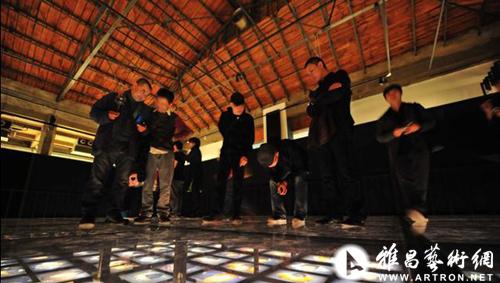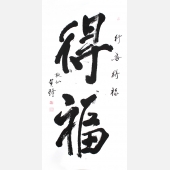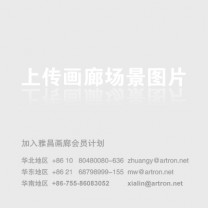Wang Jinsong
2011-04-15 12:08:50

"Riddles"
Tangram Art Center, Shanghai
Through November 23, 2010
The work of Chinese artist Wang Jinsong has long documented the changing face of China. His best known work is the "Standard Family" series, 200 portraits of single-child families taken in the later part of the 1990s. These photographs have an extraordinary poignancy, as they record a kind of family grouping that was traditionally foreign to the Chinese, but has become the new reality under the official one-child policy. At the turn of the century, Wang captured the destructive face of development with the photographic collage "One Hundred Signs of Demolition" (1999), which recorded buildings marked with the whitewashed ideogram for "chai" (demolish), which was then spreading like a plague across the walls of the older parts of China’s cities.
His latest work, "Riddles," is another kind of documentation. Over the past two years, Wang has traveled across China taking portraits of hundreds of individuals. Each is posed in an identical fashion, looking up into the camera with his or her face lit from above. It calls to mind the Chinese name of the exhibition, "Tian Wen," which could be translated as "asking heaven," or (since this is classical Chinese) as "heaven asks." It is a reference to an ancient collection of poems by that name, a series of enigmatic meditations on the origins of things. The photographs are installed in light boxes which form the floor of the exhibition, so that the subjects look up at the viewer, who gazes back from the position of the photographer — or perhaps from the vantage point of heaven.
As we look down, each of the artist's subjects arrests us with his or her particularity, reminding us that the Chinese people, whom we so often consider only as a mass, are a collection of individuals, like this one, who seems cocky, and that one, who seems unsure, or he, who is plain, and she, who is beautiful. The changes in China that Wang Jinsong has devoted his career to recording have never come faster than they are coming now. "Riddles" is a moving reminder that even though China's people are being carried headlong towards an unknown future, each exists in a world of private thoughts, hopes, questions, and answers.
上一篇:“人世何苦?苍生何辜?”——关于王劲松新作 “天问”
下一篇:THE CIRCUS

 黄琦
黄琦 武中奇
武中奇 测试用艺术
测试用艺术
